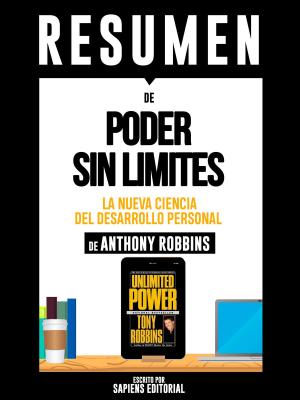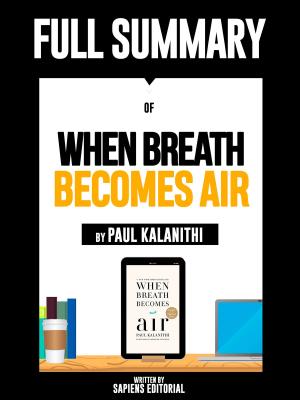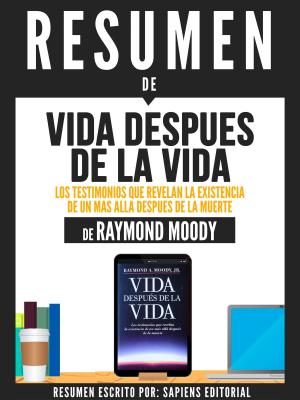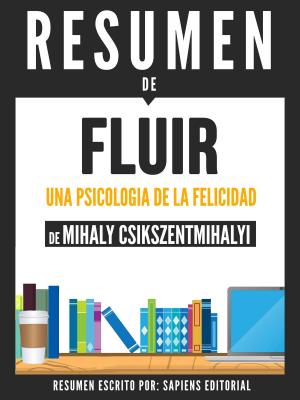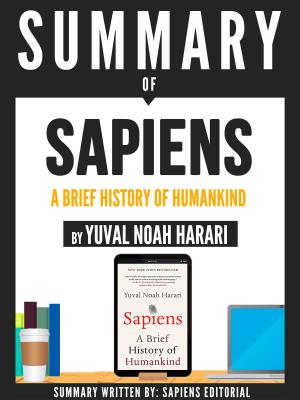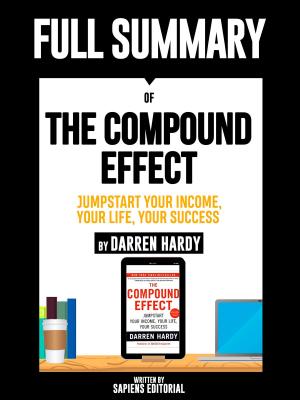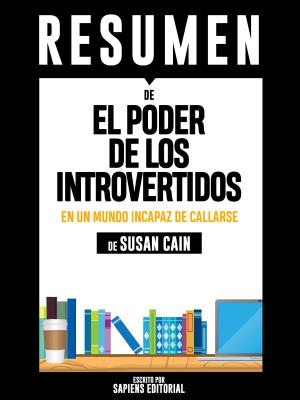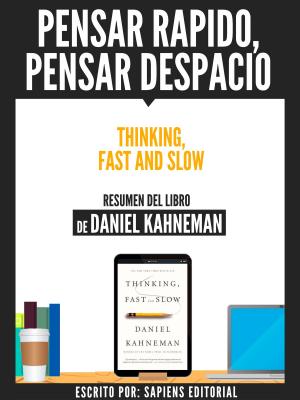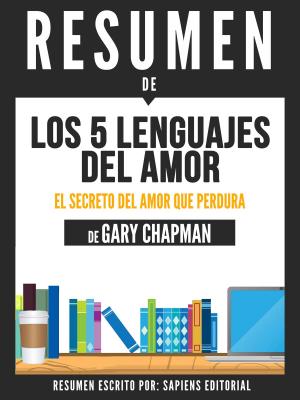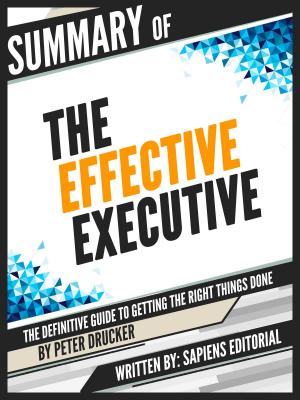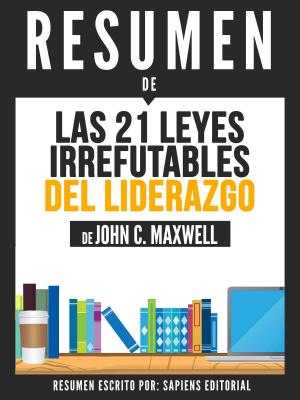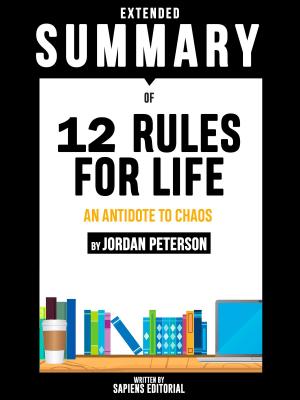Extended Summary Of The Monk Who Sold His Ferrari: A Fable About Fulfilling Your Dreams & Reaching Your Destiny - By Robin Sharma
Nonfiction, Health & Well Being, Self Help, Self Improvement, Success| Author: | Sapiens Editorial, Sapiens Editorial | ISBN: | 9783966614825 |
| Publisher: | Sapiens Editorial | Publication: | June 3, 2019 |
| Imprint: | Language: | English |
| Author: | Sapiens Editorial, Sapiens Editorial |
| ISBN: | 9783966614825 |
| Publisher: | Sapiens Editorial |
| Publication: | June 3, 2019 |
| Imprint: | |
| Language: | English |
ABOUT THE ORIGINAL BOOKOur attitude is the perspective with which we make all of our decisions in life. According to our attitude, we choose the activities we want to do, measure our energy levels and react to different situations. Therefore, it is logical to conclude that our attitude is essential if we want to lead a full life. The good news is that we can get full control of our attitude to stay enthusiastic and full of energy. That is the goal of the tips and methods presented in this book.Let's stop giving excuses and postponing what is really important. Nothing should obstruct our path in the search to improve our health in the three most relevant areas: mind, body and spirit. Let's take this as our starting point to perform an internal replenishment that balances us in these three areas. This guide is for those who are immersed in their work world, but who want to transform themselves to find personal improvement that stabilizes their lives.The Monk Who Sold His Ferrari was published in 1997 and has already become a classic in this area. It relates the story of Julian Mantle, a lawyer who manages to find enlightenment and healing to achieve a happier and more rewarding existence. The anecdote is full of advice that Julian gave his former colleague John, although in reality they are intended for the reader to draw a parallel between their own story and that of the character, thus making it easier to exemplify a change of life. The advice is based on the teachings of the Sages of Sivana and their seven virtues, which Julian learns when he decides to seek wisdom in the Himalayan Mountains after his health declines.INTRODUCTIONJulian Mantle, an enlightened trial attorney, believed that he had everything he needed in life, until the day he suffered a heart attack while conducting a trial. Frightened by the event, he longed to find a new meaning to his existence, so he decides to travel to India after quitting his job, abandoning the law firm and getting rid of all his material assets, among which was his Ferrari.Three years later, Julian returns to the offices where he worked as a lawyer. There he meets one of his former colleagues, John, who at first does not recognize him after having changed radically: Julian is the very image of well-being, health and vitality, and the big smile never leaves his face. He even looks younger than before he disappeared. In fact, the contrast between John and Julian is quite severe, since John now seems to personify Julian from three years ago, aged and stressed by work.Julian wants to help John to free himself as he did, so he invites him to his house to tell him about his mystical journeys through the Himalayas and the land of Sivana, where the wise people lived who taught him a new way of life. Before finding the Sages of Sivana, Julian had tried to seek wisdom by traveling from town to town through India, until he finally heard about Sivana while in Kashmir.Julian begins to transmit his teachings through an anecdote about a sumo fighter on a yellow rose garden. In the end, it is a beautiful story that contains valuable metaphors about provisions that are essential to reach an enlightened life.After finishing the garden anecdote and its symbolic explanation, Julian continues to motivate John's transformation through a very simple program that lasts only thirty days. Each day an hour was dedicated to practice the Ten Rituals that make up an enlightened life. Some of the activities of these rituals consisted of getting up early, enjoying a moment of solitude and silence, repeating positive mantras, reading frequently and doing good actions daily.At the end of this story, we will be able to understand why Julian Mantle decided to sell his Ferrari and how this action made him so happy. We will also be able to discern why we could also sell our Ferrari if we had it, or why you may not even want one in the first place. All we need is the balm of wisdom.
ABOUT THE ORIGINAL BOOKOur attitude is the perspective with which we make all of our decisions in life. According to our attitude, we choose the activities we want to do, measure our energy levels and react to different situations. Therefore, it is logical to conclude that our attitude is essential if we want to lead a full life. The good news is that we can get full control of our attitude to stay enthusiastic and full of energy. That is the goal of the tips and methods presented in this book.Let's stop giving excuses and postponing what is really important. Nothing should obstruct our path in the search to improve our health in the three most relevant areas: mind, body and spirit. Let's take this as our starting point to perform an internal replenishment that balances us in these three areas. This guide is for those who are immersed in their work world, but who want to transform themselves to find personal improvement that stabilizes their lives.The Monk Who Sold His Ferrari was published in 1997 and has already become a classic in this area. It relates the story of Julian Mantle, a lawyer who manages to find enlightenment and healing to achieve a happier and more rewarding existence. The anecdote is full of advice that Julian gave his former colleague John, although in reality they are intended for the reader to draw a parallel between their own story and that of the character, thus making it easier to exemplify a change of life. The advice is based on the teachings of the Sages of Sivana and their seven virtues, which Julian learns when he decides to seek wisdom in the Himalayan Mountains after his health declines.INTRODUCTIONJulian Mantle, an enlightened trial attorney, believed that he had everything he needed in life, until the day he suffered a heart attack while conducting a trial. Frightened by the event, he longed to find a new meaning to his existence, so he decides to travel to India after quitting his job, abandoning the law firm and getting rid of all his material assets, among which was his Ferrari.Three years later, Julian returns to the offices where he worked as a lawyer. There he meets one of his former colleagues, John, who at first does not recognize him after having changed radically: Julian is the very image of well-being, health and vitality, and the big smile never leaves his face. He even looks younger than before he disappeared. In fact, the contrast between John and Julian is quite severe, since John now seems to personify Julian from three years ago, aged and stressed by work.Julian wants to help John to free himself as he did, so he invites him to his house to tell him about his mystical journeys through the Himalayas and the land of Sivana, where the wise people lived who taught him a new way of life. Before finding the Sages of Sivana, Julian had tried to seek wisdom by traveling from town to town through India, until he finally heard about Sivana while in Kashmir.Julian begins to transmit his teachings through an anecdote about a sumo fighter on a yellow rose garden. In the end, it is a beautiful story that contains valuable metaphors about provisions that are essential to reach an enlightened life.After finishing the garden anecdote and its symbolic explanation, Julian continues to motivate John's transformation through a very simple program that lasts only thirty days. Each day an hour was dedicated to practice the Ten Rituals that make up an enlightened life. Some of the activities of these rituals consisted of getting up early, enjoying a moment of solitude and silence, repeating positive mantras, reading frequently and doing good actions daily.At the end of this story, we will be able to understand why Julian Mantle decided to sell his Ferrari and how this action made him so happy. We will also be able to discern why we could also sell our Ferrari if we had it, or why you may not even want one in the first place. All we need is the balm of wisdom.

